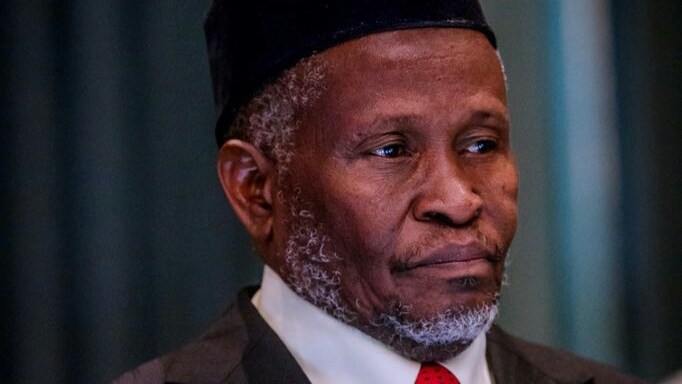The attitude of some staff of the judiciary, who are not judges, has been identified as the cause of corruption label placed against the Nigerian judiciary.
Some lawyers claim that these staff usually demand for tips before files are filed or moved, and in some cases, judges are involved in payments for judgments.
The Independent Corrupt Practices Commission (ICPC) in its latest report said the Nigerian judiciary is at the top of the corrupt institutions in the country.
The ICPC corruption index report, published this month, said about N9.4 billion was demanded, offered and paid as bribe in the justice sector between 2018 and 2020.
The latest ICPC report titled ‘Nigeria Corruption Index: Report of a Pilot Survey’, which was conducted by the Anti-Corruption Academy of Nigeria, the research and training arm of the ICPC, found that “Bribe for judgment is one of the most egregious forms of grand corruption as it operates to undermine the very essence of judicial dispute resolution.”
The survey found that 78 respondents, constituting 8.7% of all justice sector respondents, reported offers or payments of bribes to influence the judicial process.
“Out of the 78 justice sector respondents that reported amounts of money offered or paid, 63 were lawyers. This number makes up 9.9% of all lawyers surveyed in the justice sector. The 63 lawyers that reported payments were mostly male being 69.8%, while their female colleagues constituted 30.2% of that population,” it said.
“In all, the total amount of money reported by lawyers was N5,733,986,000. The amount reported by female lawyers was N918,045,000 while male lawyers reported N4,815,941,000 (N4.8 billion).
“These amounts made up 9.71% and 50.92% respectively of the total amount reported by the justice sector respondents. Lawyers reported 60.63% of the bribes offered and paid by justice sector respondents.
“The amount of money offered to judges was next in volume to payments made by lawyers. In all, N3,699,664,000 (N3.699 billion) was reported by 11, that is 8.9 per cent of the 123 judges surveyed. 6(54.5 per cent) out of the judges that reported the offers were female, while 5(45.5 per cent) were male.”
The perception that the Nigerian judiciary is corrupt has been a recurring issue. For instance, a study in 2017 by the National Corruption Survey report by the National Bureau of Statistics (NBS), in collaboration with the United Nations Office on Drugs and Crime (UNODC), revealed that an estimated N400 billion, or equivalent of $4.6 billion, is paid out in bribes to public officials in Nigeria annually.
But a senior official of the judiciary said the onus is on the Judicial Service Commission, which is responsible for appointing officials and supporting staff of the judiciary, to improve its recruitment system and to identify corrupt individuals entering the institution.
“The chairman of ICPC, Professor Bolaji Owasanoye, made it clear that the bulk of the corruption is by the registrars and staff of the court, not judges,” he said.
But non-governmental organisations and lawyers have continued to express their views on the findings.
The convener of Access to Justice (A2J), Joseph Otteh, said that undeniably, corruption has been a thorn in the flesh of the Nigerian Judiciary for a long time now, but the exchange of money is only one of the ways in which it manifests.
“Corruption is also seen in age-falsifications, in using leverages illicitly to influence judicial appointments (nepotism), or cover up acts of judicial misconduct etc etc. All of these negatively impact the independence of the Judiciary, because a judge who falsifies his or her age is more likely to act unethically in other circumstances,” he said.
He noted that the problem of corruption is worsening in the country with particular reference to the judiciary which, he said, is no longer bothered by criticisms. He added that until the leadership of the judiciary is remodelled with a system of enforcing integrity and accountability within the administration of justice, the problem might continue.
On his part, Paul Ananaba (SAN) said although there is corruption in the judiciary, it does not translate or justify saying that the judiciary is ‘very corrupt’.
“The judiciary also has the mechanism for cleansing itself. We need to begin with the process of appointing judicial officers. We need to review the criteria. We need to secure financial autonomy of the judiciary and security of their tenure in office. Undue interference in the judicial process should be checked. Security probe and investigation of givers and takers of bribe should be strengthened,” he said.
A Lagos-based lawyer and national convener United Action for Democracy (UAD), Gabriel Ojumah, backed the finding as the ‘bitter truth’.
“Corruption is the biggest problem Nigeria as a nation is facing today. Yes, we have security, health and other challenges but corruption has become so endemic that it affects all spheres of our national lives.
The Judiciary being an important institution is not left behind. Today, you cannot file a case and expect your case to move forward without giving bribe. Starting from filing till decision is made. The solution is that we have to change our value system. Total reorientation of our minds set,” he said.
Also reacting, E.M.D. Umukoro Esq described the report as sad but added that it should make every right-thinking Nigerian, particularly members of the judiciary and the legal profession to be on their toes and with immediate alacrity sanitize the judiciary.
“There are honest, hard working and forthright judges in Nigeria but unfortunately the bad eggs are soiling the judiciary with their atrocities,” he said.
In his view, Hamed Ajibola Jimoh Esq debunked the report insisting that it is a fallacy from the ICPC, while calling for the identification of punishment of corrupt officials.
“The judiciary in my humble view might have some corrupt officials and corrupt persons might be everywhere but that does not in my humble view mean that the judiciary is the most corrupt,” he stated.

 Join Daily Trust WhatsApp Community For Quick Access To News and Happenings Around You.
Join Daily Trust WhatsApp Community For Quick Access To News and Happenings Around You.


